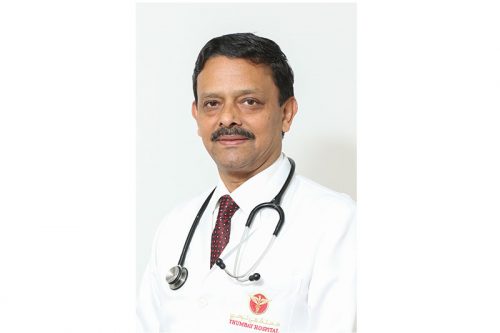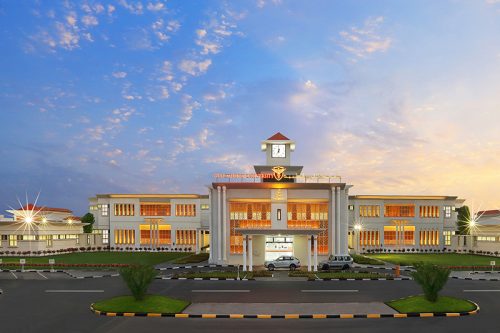
A 43-year old Indian security guard working in Sharjah regained his leg movement and bladder control after undergoing an emergency surgery for Acute Cauda Equina Syndrome, helping him overcome his abrupt onset of severe back pain which was so excruciating that he could barely stand up.
Abdul Majeed, working as a security guard in Sharjah, had been experiencing frequent back-pains for some time, for which he used to occasionally take pain-killers. However, one recent morning, he woke up with severe back pain. Soon the back pain increased, gradually extending to his left leg. An alarming fact was that along with the pain, he also had difficulty in passing urine.
Abdul Majeed visited a hospital, where he was given an injection for pain relief. However, the pain persisted, and he visited yet another hospital, which gave him another couple of injections. When the pain wouldn’t go away, he visited Thumbay Hospital Day Care in Rolla, Sharjah, where they referred him to Thumbay Hospital, Ajman.
At Thumbay Hospital – Ajman, Abdul Majeed consulted Dr. Hillol Kanti Pal, Consultant – Neurosurgery. During preliminary investigations, it was revealed to the doctor that the patient hadn’t passed urine for more than 48 hours. After detailed clinical examinations, Dr. Hillol diagnosed his condition as Acute Cauda Equina Syndrome, an uncommon disorder that affects the bundle of nerve roots (called Cauda Equina) at the lower end of the spinal cord. The Cauda Equina, when severely compressed, results in loss of sensation in the private parts with weakness at the ankle, also affecting bladder and bowel functions. In Abdul Majeed’s case, his Cauda Equina had been compressed by a large disc hernia at his lumbar spine.
Failure to diagnose Cauda Equina Syndrome early on can lead to serious complications including permanent paralysis of the muscles of one or both legs as well as permanent loss of bladder/bowel control. Usually, when the Cauda Equina is affected in a patient acutely as in his case, it has to be operated on within 48 hours of onset for maximal recovery.
When Abdul Majeed consulted Dr. Hillol, it was almost 72 hours after the onset of weakness and numbness of his left ankle and loss of bladder function. So, Dr. Hillol decided to go for immediate surgical intervention. The surgery, which lasted 2 hours, took out the disc which was compressing the Cauda Equina.
“Surgical decompression within 48 hours of diagnosis is an emergency step for treating Cauda Equina syndrome effectively. Delay in surgical intervention could result in permanent loss of bladder control and the need for indwelling catheter, seriously impacting the employment prospects of patients like Abdul Majeed,” said Dr. Hillol, explaining the importance of early detection and treatment.
Abdul Majeed not only regained the sensation and power of his left ankle and could pass urine on his own, by the time of discharge from hospital.







